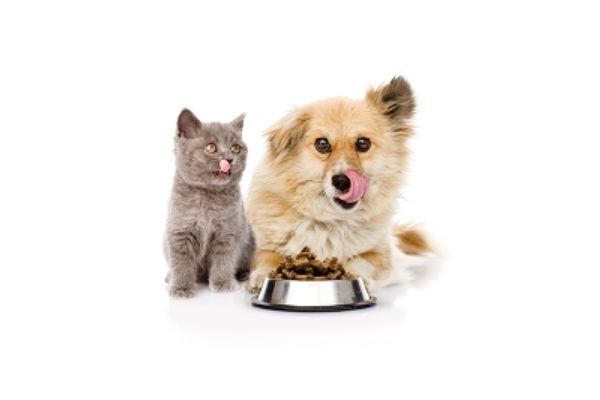SABIC, a global leader in the chemical industry, today announced that polypropylene (PP) film based on the company’s certified circular PP from feedstock recycling of used plastics will be introduced in primary pet food brand packaging by Mars, Incorporated, a global leader in confectionery, food, and pet food products. The PP film structures are manufactured by Huhtamaki, a key supplier of sustainable packaging solutions to customers around the world. The joint initiative will help the partners implement their ambitious targets of reducing the volume of fossil-sourced plastics and accelerate the transition to a more circular plastics economy.
“The littering of plastic packaging on our land and oceans is unacceptable, and at Mars we’re committed to addressing this problem,” says Barry Parkin, Chief Procurement and Sustainability Officer at Mars, Incorporated. “To do this, we need to reduce packaging we don’t need, redesign the remaining packaging to become circular, and invest to close the loop and help scale up recycling systems. Through our partnership with Huhtamaki and SABIC, we will test-and-learn, progressively increase the recycled plastic content in our packs, and ultimately help drive circular packaging systems.”
Following a successful pilot phase in 2020, Mars will incorporate certified circular PP polymer from SABIC’s TRUCIRCLE™ portfolio in the primary packaging of some of its popular pet food brands. The certified circular PP food-grade material is produced through the feedstock recycling of low quality, used mixed plastic that could otherwise be destined for incineration or landfill. It takes difficult to recycle used plastic back to the molecular level through a process called pyrolysis. This technology breaks down used plastic by heating it at a very high temperature in an oxygen-free environment, producing pyrolysis oil. SABIC uses pyrolysis oil for the production chain just like fossil-based that enters the production chain just like fossil-based feedstock to deliver new materials that can address strict quality requirements, such as certain hygiene standards for food packaging. The resulting PP polymer is verified and authenticated under the International Sustainability and Carbon Certification (ISCC PLUS) scheme, which uses a mass balance approach. SABIC’s certified circular products from our TRUCIRCLE™ portfolio offer a carbon footprint reduction of 2kgs of CO2 for every kilogram of polymer produced based on the diversion of post-consumer used plastic from incineration.
“Our strategic partnership with Mars and SABIC is a great example of how collaboration can result in breakthroughs that deliver significant progress in our journey to designing 100 percent of our products to be recyclable, compostable or reusable by 2030,” states Charles Héaulmé, President and CEO of Huhtamaki: “We are fully committed to playing our part in building a circular economy across the value chain and partnering with others to do so. Our new flexible BOPP packaging structure with certified recycled food-grade PP polymer is an important milestone on our journey towards achieving that more than 80 percent of the raw materials we use will be either renewable or recycled.”
Likewise, while Mars is piloting the use of SABIC recycled content in Europe in 2020, the company plans to increase volumes used in 2021 with ambitions to other brands. Mars sees this as a major step in the company’s sustainability strategy, which is targeting the use of 30 percent recycled content across their packaging portfolio and a 25 percent reduction of virgin plastic by 2025.
“This successful collaboration with Mars and Huhtamaki reflects the partners’ willingness and shared pioneering spirit for effective change in the industry towards a truly circular plastics economy,” adds Sergi Monros, Vice President of Performance Polymers & Industry Solutions for Petrochemicals at SABIC. “At SABIC, we are determined to develop new solutions that meet our customers’ growing demands for more sustainable polymers. Only through partnerships such as these can we prove the commercial viable and sustainable contribution of advanced recycling processes to help confront the challenges our society is facing today.”
With its TRUCURCLE portfolio, SABIC is capturing great value from sources like animal-free bio-based feedstock and post-consumer recycle, which have traditionally been ignored or discarded. The ISCC PLUS accredited materials offer drop-in solutions for replacing fossil-based plastics in the packaging industry without compromising product purity and food safety. Moreover, BOPP film using certified circular PP polymer from SABIC offers an excellent balance of stiffness and toughness as well as barrier and hot-fill properties. It can be used for a wide range of flexible applications, from labels and tape to packaging pouches and bags in areas such as confectionery, snacks, baked goods, dried fruits, pasta, fresh food, and pet care products.
SABIC’s TRUCIRCLE offering spans from design for recyclability services and mechanically recycled materials to certified circular products from feedstock recycling of used plastics as well as certified renewable polymers from bio-based feedstock. Third-party ISCC PLUS certification ensures that the mass balance accounting of the company’s circular polymer products follows predefined and transparent rules. In addition, it provides traceability along the entire supply chain from the feedstock to the final product. Read more here
Source: SABIC Website
Packaging 360 is a comprehensive knowledge sharing ecosystem for the Indian packaging industry. Our services include an online content platform to deliver news, insights and case studies; organising conferences seminars and customised training; Providing Bespoke Project Consulting, Market Research and Intelligence.







